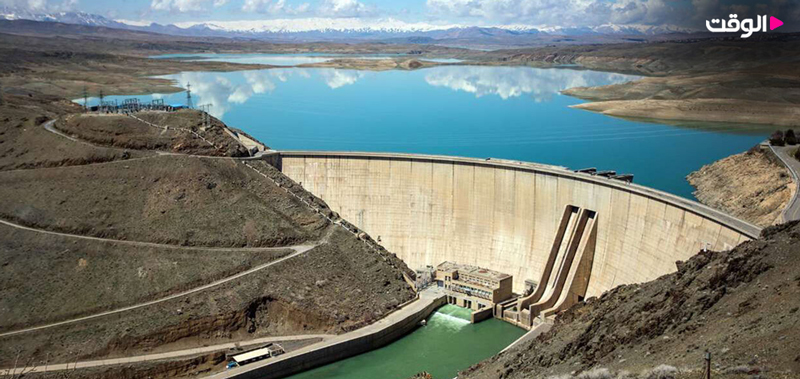Alwaght- While recently dust storms prompted by the Turkish dam construction projects on the Euphrates and Tigris rivers have been exposing the region to a big environmental issue, the Iraqi Kurdistan region is moving towards constructing more dams in the areas under its control, possibly making things worse at least for Iraq itself.
Media reports said that Erbil in a move not coordinated with the centeral Iraqi government has inked a contract with PowerChina company to construct four new dams.
This agreement comes as the ninth cabinet of Kurdistan region in northern Iraq put the construction of three dams on the agenda and with the new agreement, 7 dams would be practically under construction on the Tigris. This provoked a new reaction from the politicians of central government, with them warming about the consequences of such projects.
But what would be the real implications of the projects? And how much can they be a source of tensions between Baghdad and Erbil?
More serious draught in southern Iraq
Without the least doubt, the first and most tangible consequence of Erbil's dam construction is severe drought in southern and central parts of Iraq. Presently, the two dams of Darbandikhan and Dukan dams are the two main sources of water from the north to lower parts of Iraq. Iraqi parts, especially the south and center, over the past years have been grappling with drought and this threat even increased in the near past, with the drought reaching alarming levels.
In addition, the construction of new dams on the Tigris and Euphrates rivers will lead to a major population and migration crisis inside Iraq in the near future.
In the past few years, water shortages and droughts have become a major crisis for the Iraqis, and have even led to popular protests in the southern and central provinces.
In case of construction of more dams in the north, migration would be a predictable and unavoidable crisis in the not-so-distant future and can turn into a big political issue in Iraq. This outlook requires moves by Baghdad to settle the issue with Erbil from now.
How can Erbil dam projects cause a political crisis in Iraq?
At first sight, the dam construction may look an environmental, rather than, political issue but the reality is that in the new era the environmental policy is one of the most political areas that is important not only internally but also regionally and even internationally. This is true also about Iraq, impacting its future equations.
Regarding the special political importance of Kurdistan Regional Government's dams on the Tigris and Euphrates, it is important to mention that in the current conditions Erbil may not politically exploit the projects but in the future it can easily instrumentalize them to press Baghdad in the usual political cases or even for independence. Since 2003, Erbil and the central government have been at loggerheads over an array of political, economic, and legal issues. Water crisis and dams can be a new divisive case between the two.
During the days of arrangement of Kurdistan region's referendum in 2017, various analysts pointed to water resources as a card potentially guaranteeing smooth movement of Erbil to independence. They suggested cutting water flow to the south and center in reaction to Baghdad cutting budget or closing borders to the autonomous region. The new dam can even strengthen Erbil's stance and be used to wrest privileges from Baghdad. The issue is so significant that in case of failure to address the potential challenge, Tigris and Euphrates water dispute can spur Iraq partition and bring about risk of civil conflict to the country.



























